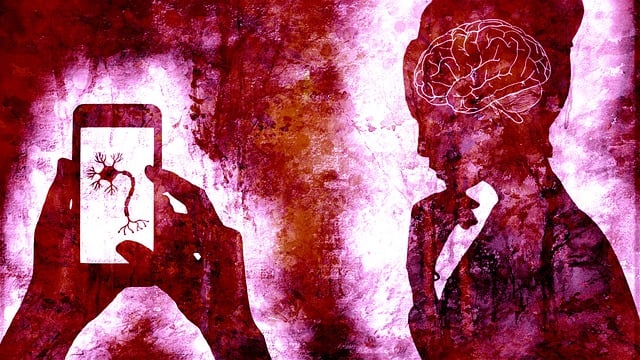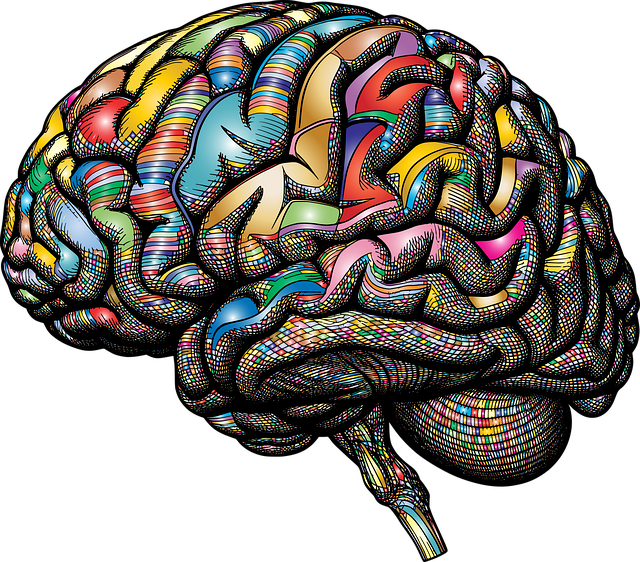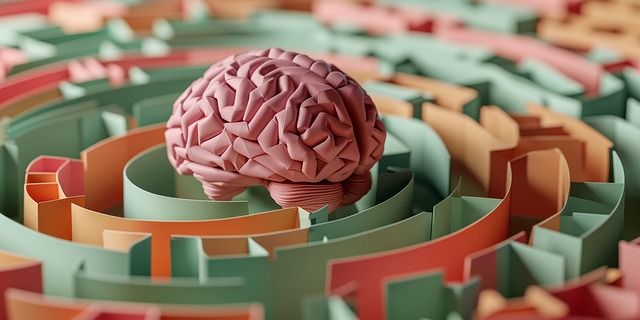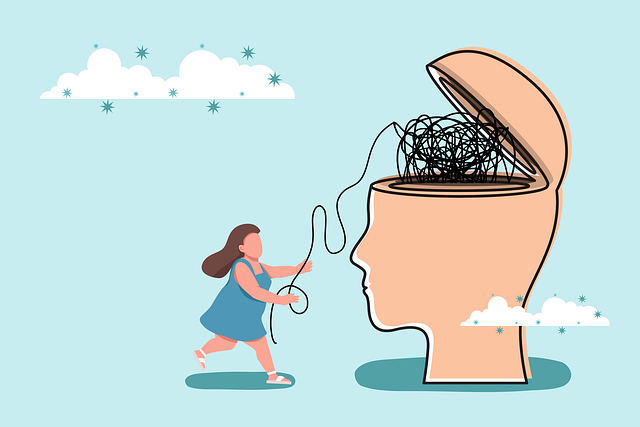Diagnosing mental illnesses accurately is challenging due to their complexity, diverse range, individual variations, and social-cultural influences. Stigma and underreporting further complicate the process. Recent efforts focus on advanced training, innovative assessment tools, and evidence-based practices like those offered by Lakewood Psychosis Therapy. Integrating cognitive behavioral therapy (CBT), virtual reality exposure therapy, artificial intelligence, and trauma-informed care enhances diagnosis accuracy and improves patient outcomes. Lakewood Psychosis Therapy stands out in its specialized approach to psychotic symptoms, combining CBT with mindfulness meditation and trauma-informed care for comprehensive evaluations and tailored treatments.
Mental illness diagnosis accuracy is a critical aspect of patient care, yet it remains challenging. This article explores the intricate issues surrounding mental health assessment and delves into current strategies aimed at improving diagnostic precision. From traditional methods to innovative techniques like Lakewood Psychosis Therapy, we uncover how cutting-edge technologies are transforming diagnosis. Understanding these efforts is crucial for healthcare professionals seeking optimal patient outcomes.
- Understanding the Challenges of Mental Illness Diagnosis
- Current Efforts to Enhance Accuracy in Diagnosis
- Innovative Techniques and Technologies for Improvement
- The Role of Lakewood Psychosis Therapy in Accurate Diagnosis
Understanding the Challenges of Mental Illness Diagnosis

Diagnosing mental illnesses accurately can be a complex and multifaceted challenge due to their intricate nature and often subtle symptoms. Many factors contribute to this complexity, including the diverse range of conditions, individual variations in presentation, and the influence of social and cultural contexts. For instance, conditions like psychosis, which is a central focus for Lakewood Psychosis Therapy, require careful assessment due to shared symptoms with other disorders. This intricate web of possibilities demands that healthcare professionals go beyond surface-level observations and employ comprehensive evaluation methods.
The process is further complicated by the impact of stigma surrounding mental illness. The fear of judgment or discrimination can lead individuals to underreport symptoms or delay seeking help, hindering accurate diagnosis and treatment. Crisis intervention guidance plays a critical role in navigating these challenges, providing immediate support while ensuring thorough assessment. Additionally, burnout prevention strategies for healthcare workers are essential as they directly impact the quality of care and diagnosis accuracy over time. Mental illness stigma reduction efforts are also integral to creating an environment where individuals feel safe and supported during the diagnostic journey.
Current Efforts to Enhance Accuracy in Diagnosis

In recent years, significant efforts have been directed toward enhancing the accuracy and reliability of mental illness diagnoses. These initiatives span various areas, from advanced training programs for healthcare professionals to the development of innovative assessment tools. One notable example is the integration of evidence-based practices in psychosis therapy, such as those offered at Lakewood Psychosis Therapy, which focus on improving self-esteem and building resilience among patients.
Additionally, trauma support services have emerged as a crucial component in diagnosing and treating mental health conditions, recognizing that many individuals present with co-occurring disorders related to past traumatic experiences. By combining these approaches, healthcare providers can better navigate the complex landscape of mental illness, ensuring more precise diagnoses and ultimately enhancing patient outcomes. This holistic approach, which addresses both the mind and body, is transforming the way we understand and treat mental health conditions, incorporating not only self-esteem improvement but also resilience building and trauma support services as integral parts of comprehensive care.
Innovative Techniques and Technologies for Improvement

In recent years, innovative techniques and technologies have emerged as powerful tools to enhance mental illness diagnosis accuracy. One such game-changer is Lakewood Psychosis Therapy, which leverages advanced cognitive behavioral therapy (CBT) methods tailored for specific disorders like psychosis. By combining evidence-based practices with digital interventions, this approach offers personalized treatment plans that target unique patient needs. For instance, virtual reality exposure therapy has shown promise in desensitizing individuals to distressing stimuli, leading to improved symptoms and overall well-being.
Furthermore, integrating artificial intelligence (AI) into mental health assessment has the potential to revolutionize diagnosis. AI algorithms can analyze vast amounts of data from patient interactions, medical records, and even social media to identify patterns indicative of specific mental health conditions. This not only boosts confidence in diagnosis but also aids healthcare providers in developing effective Burnout Prevention Strategies. Alongside these technological advancements, Mental Health Education Programs Design play a crucial role in equipping professionals with the knowledge and skills needed to interpret complex symptoms accurately. Such programs foster a deeper understanding of various disorders, enabling practitioners to make more informed decisions in their practice settings.
The Role of Lakewood Psychosis Therapy in Accurate Diagnosis

Lakewood Psychosis Therapy plays a pivotal role in enhancing mental illness diagnosis accuracy. This therapeutic approach focuses on identifying and managing psychotic symptoms, which can be particularly challenging to distinguish from other psychiatric conditions. By employing evidence-based practices, such as cognitive behavioral therapy (CBT) and mindfulness meditation, therapists equipped with this expertise aid individuals in navigating complex mental health landscapes. They help differentiate between psychosis and co-occurring conditions like depression or anxiety, ensuring more precise diagnoses.
Additionally, trauma support services within the framework of Lakewood Psychosis Therapy contribute to accurate assessments. Many individuals experiencing psychotic episodes have a history of trauma, which can mimic or exacerbate symptoms. By integrating trauma-informed care, therapists gain deeper insights into their clients’ experiences, leading to more comprehensive evaluations and tailored treatments. This multifaceted approach not only improves diagnosis accuracy but also paves the way for effective mood management strategies, fostering better mental health outcomes.
Mental illness diagnosis accuracy has seen notable improvements through advanced techniques like Lakewood Psychosis Therapy, which offers a more nuanced understanding of psychotic disorders. By combining traditional methods with innovative technologies, healthcare professionals are better equipped to navigate the complex landscape of mental health assessments. Continued research and integration of these cutting-edge approaches hold the key to enhancing diagnostic accuracy, ultimately fostering more effective treatment strategies.














